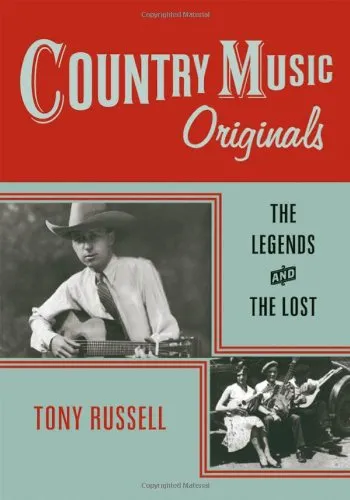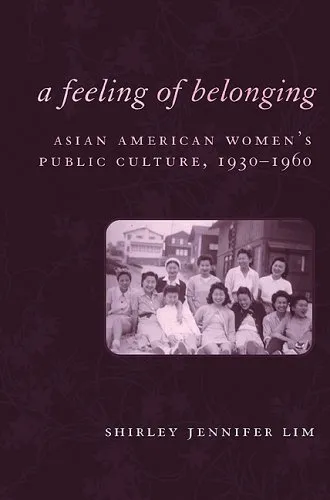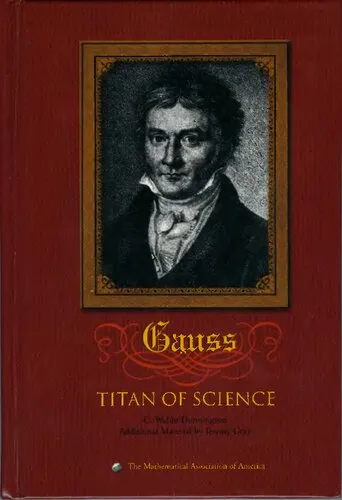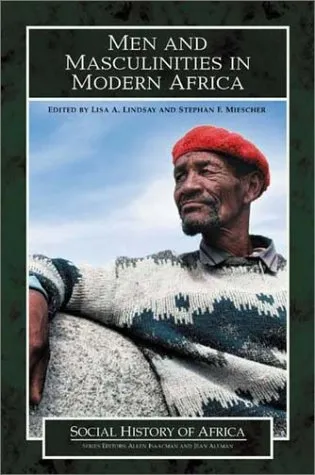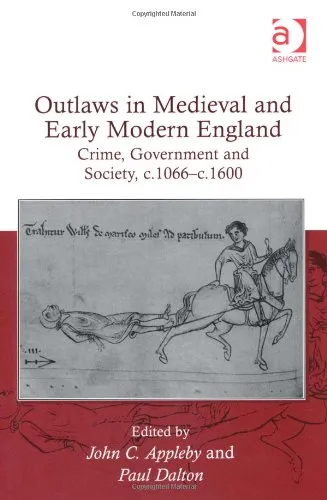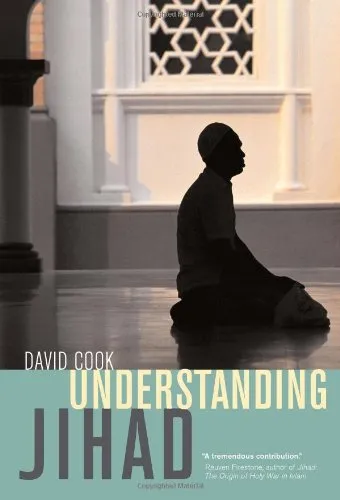Bandit Nation: A History of Outlaws and Cultural Struggle in Mexico, 1810-1920
4.5
بر اساس نظر کاربران

شما میتونید سوالاتتون در باره کتاب رو از هوش مصنوعیش بعد از ورود بپرسید
هر دانلود یا پرسش از هوش مصنوعی 2 امتیاز لازم دارد، برای بدست آوردن امتیاز رایگان، به صفحه ی راهنمای امتیازات سر بزنید و یک سری کار ارزشمند انجام بدینکتاب های مرتبط:
معرفی کامل کتاب "Bandit Nation: A History of Outlaws and Cultural Struggle in Mexico, 1810-1920"
کتاب Bandit Nation: A History of Outlaws and Cultural Struggle in Mexico, 1810-1920 از «کریس فریزر» یکی از متون برجسته در زمینه مطالعه تاریخ فرهنگی و اجتماعی مکزیک است که نگاهی عمیق به تاریخچه شورشها، جنایتکاری، و کشمکشهای فرهنگی در بازه زمانی ۱۸۱۰ تا ۱۹۲۰ دارد. این اثر تلاش میکند تا شخصیتها و روایتهایی که معمولا فراموش شده یا در حاشیه قرار گرفتهاند را به شکل تازهای بازگویی و به فرهنگ عامه معرفی کند. همچنین، این کتاب نقشی کلیدی در درک تحول مفاهیم فرهنگ، قدرت، و قانون طی یک قرن پرتلاطم در مکزیک بازی میکند.
خلاصهای جامع از کتاب
کتاب Bandit Nation به بررسی تاریخی دزدان و یاغیان مکزیکی میپردازد که اغلب به عنوان نماد مقاومت و شورش در برابر ظلم دولتی و اجتماعی شناخته میشدهاند. از رهبران انقلابی همچون امیلیانو زاپاتا و پابلو اوترو گرفته تا دزدان محلی ناشناختهای که زندگیشان در قصهها و افسانهها جاودانه شده است، این کتاب تلاش میکند که روایتهای آنان را به تصویر بکشد و تحلیل کند. این اثر نه تنها بر تاریخ اجتماعی و اقتصادی مکزیک تمرکز دارد بلکه نشان میدهد که چگونه حرکات یاغیگری و جنایتهای سازماندهیشده به ابزارهایی علیه ساختارهای ناعادلانه اجتماعی تبدیل شدهاند.
نویسنده با بهرهگیری از منابع متعدد شامل آرشیوهای دولتی، روزنامهها و روایتهای محلی، این موضوعات را بررسی میکند که چرا و چگونه یاغیان در مکزیک به الگوهای قهرمانان فرهنگی تبدیل شدند. این کتاب معتقد است که یاغیان به سادگی مجرمان نبودند؛ بلکه آنها نماینده جوامعی بودند که در پی یک تغییر بنیادین در نظم اجتماعی بودند. از اینرو، «کریس فریزر» این پرسش مهم را مطرح میکند که آیا این افراد واقعا تهدیدی برای دولت بودند یا بازتاب مقاومت اجتماعی در برابر بیعدالتی؟
نکات کلیدی کتاب
- تحلیل چگونگی ظهور یاغیان و دزدان به عنوان نمادهای فرهنگی در مکزیک.
- بررسی روابط تنشزای میان مردم محلی، دولت، و یاغیان در بازه یک قرن.
- توضیح تأثیر این حرکات بر هویت ملی و گفتمانهای سیاسی مکزیک.
- ارائه تصویری جدید و چندلایه از نقش قانون و بیقانونی در جوامع مکزیکی.
- آشکارسازی تاثیر داستانهای یاغیگری بر ادبیات، هنر و سیاست مکزیک.
نقلقولهای معروف از کتاب
«یاغیان تنها دشمنان قانون نبودند؛ بلکه آنها تجسم تمایل جمعی به عدالت در جامعهای نابرابر بودند.»
«هر روایت یاغی، یک شاهکار ادبیات عامه است که مقاومت در برابر انواع فشارهای اجتماعی را نشان میدهد.»
«تاریخ یاغیان مکزیکی نه تنها یک داستان خشونت و جنایت است، بلکه حکایتی پر از امید، اتحاد، و تلاش برای ساختن دنیایی بهتر است.»
چرا این کتاب مهم است؟
کتاب Bandit Nation اهمیت ویژهای در مطالعات تاریخی و فرهنگی دارد، زیرا به بازاندیشی در مورد مفهوم «قانون» و «بیقانونی» در جوامع کهن مکزیک پرداخته است. این اثر نشان میدهد که چگونه فرهنگ محلی میتواند در مقابل ساختارهای قدرت دولتی مقاومت کند و از سازوکارهای خود برای حفظ هویت و عدالت استفاده کند. همچنین، برای دانشجویان تاریخ، جامعهشناسی، انسانشناسی و حتی علاقهمندان به داستانهای یاغیان، این کتاب یک منبع بینظیر است که پر از جزئیات تاریخی و تحلیلهای جذاب است.
چند لایه بودن روایتها و تحقیقات عمیقی که در این کتاب انجام شده است، به خوانندگان اجازه میدهد تا به درک بهتری از نیروی اجتماعی پشت یاغیگری برسند. به عبارت دیگر، این اثر فقط تاریخی نیست بلکه درسی درباره برابری، مقاومت، و تبدیل شدن تضاد به هویت فرهنگی است.
Introduction to Bandit Nation: A History of Outlaws and Cultural Struggle in Mexico, 1810-1920
Outlaws, rebels, and bandits have always been captivating figures in history, embodying a distinctive blend of defiance, rebellion, and, at times, heroism. Bandit Nation digs deep into the role of these figures in Mexican history, spanning the crucial period of 1810 to 1920. This book is not just about the tales of outlaws; it critically examines how banditry became intertwined with Mexican identity, culture, and political struggles during some of the nation's most tumultuous years. It highlights the searing struggles between the people and the state, the clash of rural and urban visions, and how these conflicts shaped Mexico's national identity.
This work goes beyond mere narrative history. It dives into the larger cultural and ideological implications of banditry, showing how its depiction fluctuated between criminality and heroism depending on the perspectives of elites, revolutionaries, and ordinary citizens. From rural Robin Hood-like figures to guerilla fighters resisting state oppression, Bandit Nation analyzes the fluid definitions of power, justice, and morality within Mexican history.
Detailed Summary of the Book
Set against the backdrop of Mexico’s evolving socio-political landscape, Bandit Nation delves into the lives and roles of outlaws during critical historical moments like the Wars of Independence, the era of Porfirio Díaz, and the Mexican Revolution. The book explores how bandits were simultaneously romanticized and vilified in Mexican culture, their constant redefinition driven by political agendas and societal anxieties.
Through meticulous research, the book chronicles the narratives of legendary outlaws and their socio-political relevance. Figures like Jesús Malverde and Heraclio Bernal are discussed not as mere aggressors but as symbols of resistance against oppressive systems. Frazer also uncovers how the Mexican state exploited the image of banditry to justify modernizing laws and military intervention, framing bandits as scapegoats for social disorder and rural disobedience.
Ideologically, Frazer explains the cultural struggle between the Mexican elites and rural peasants. While elites often used "banditry" as a convenient label to vilify dissenters, the grassroots rural communities frequently embraced these outlaws as champions of justice. The duality of their representation in folk tales, ballads, and even government propaganda is a recurring theme throughout the book. Frazer’s work ultimately shows how banditry provides a lens through which we can study broader tensions of inequality, power, and resistance in Mexico.
Key Takeaways
- Banditry in 19th and early 20th-century Mexico was closely connected to broader societal struggles, including land rights, poverty, and opposition to state control.
- The perception of bandits often reflected the agendas of those in power, who used propaganda to align banditry with criminality and villainy while rural communities saw them as symbols of justice and rebellion.
- The cultural narratives surrounding bandits created enduring myths that persist in Mexico’s collective memory and continue to shape discussions on justice and morality.
- Understanding the history of Mexican banditry provides a window into the complex relationship between governance, identity, and resistance in the nation.
- Mexico’s history is deeply marked by the dynamics of contesting authority, a theme personified by its legendary outlaws.
Famous Quotes from the Book
"Banditry is more than outlawry; it is an enduring mirror of the inequalities and injustices that have plagued Mexican society for centuries."
"To the elite, the bandit is a villain; to the downtrodden, he is a hero. This duality is not just imagined—it is central to the fabric of Mexican culture."
"Through the stories of its bandits, Mexico tells a larger story of its people—their struggles, their passions, and their demands for justice."
Why This Book Matters
Bandit Nation stands as a vital contribution to Mexican studies, offering readers a nuanced understanding of how banditry shaped and reflected the nation's socio-political reality. It challenges simplifications of outlaws as mere criminals, instead arguing that they represent deeper societal tensions and cultural narratives. The book helps readers rethink concepts of morality, justice, and nationalism in a historical context, which remain relevant today.
Furthermore, as a historical examination that spans key events in Mexican history, the book provides insight not only into outlaws but also into Mexico's historical shifts in governance, economy, and culture. It unveils how cultural struggle, framed around the polarizing figures of bandits, helped shape Mexican nationalism. Whether you're a historian, a scholar, or a reader fascinated by the intersections of crime and heroism, Bandit Nation offers an indispensable perspective on the making of modern Mexico.
دانلود رایگان مستقیم
شما میتونید سوالاتتون در باره کتاب رو از هوش مصنوعیش بعد از ورود بپرسید
دسترسی به کتابها از طریق پلتفرمهای قانونی و کتابخانههای عمومی نه تنها از حقوق نویسندگان و ناشران حمایت میکند، بلکه به پایداری فرهنگ کتابخوانی نیز کمک میرساند. پیش از دانلود، لحظهای به بررسی این گزینهها فکر کنید.
این کتاب رو در پلتفرم های دیگه ببینید
WorldCat به شما کمک میکنه تا کتاب ها رو در کتابخانه های سراسر دنیا پیدا کنید
امتیازها، نظرات تخصصی و صحبت ها درباره کتاب را در Goodreads ببینید
کتابهای کمیاب یا دست دوم را در AbeBooks پیدا کنید و بخرید
1458
بازدید4.5
امتیاز0
نظر98%
رضایتنظرات:
4.5
بر اساس 0 نظر کاربران
Questions & Answers
Ask questions about this book or help others by answering
No questions yet. Be the first to ask!



